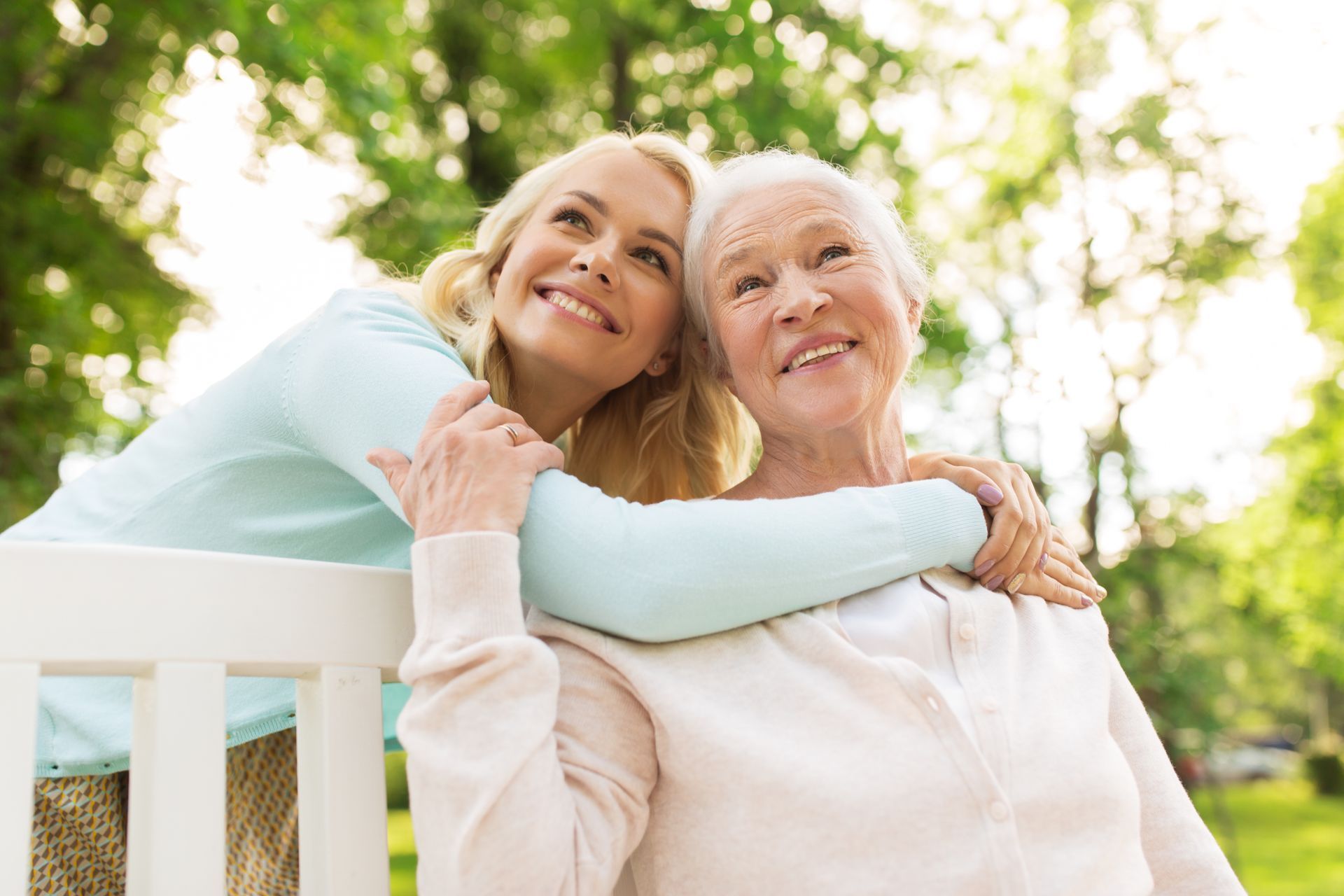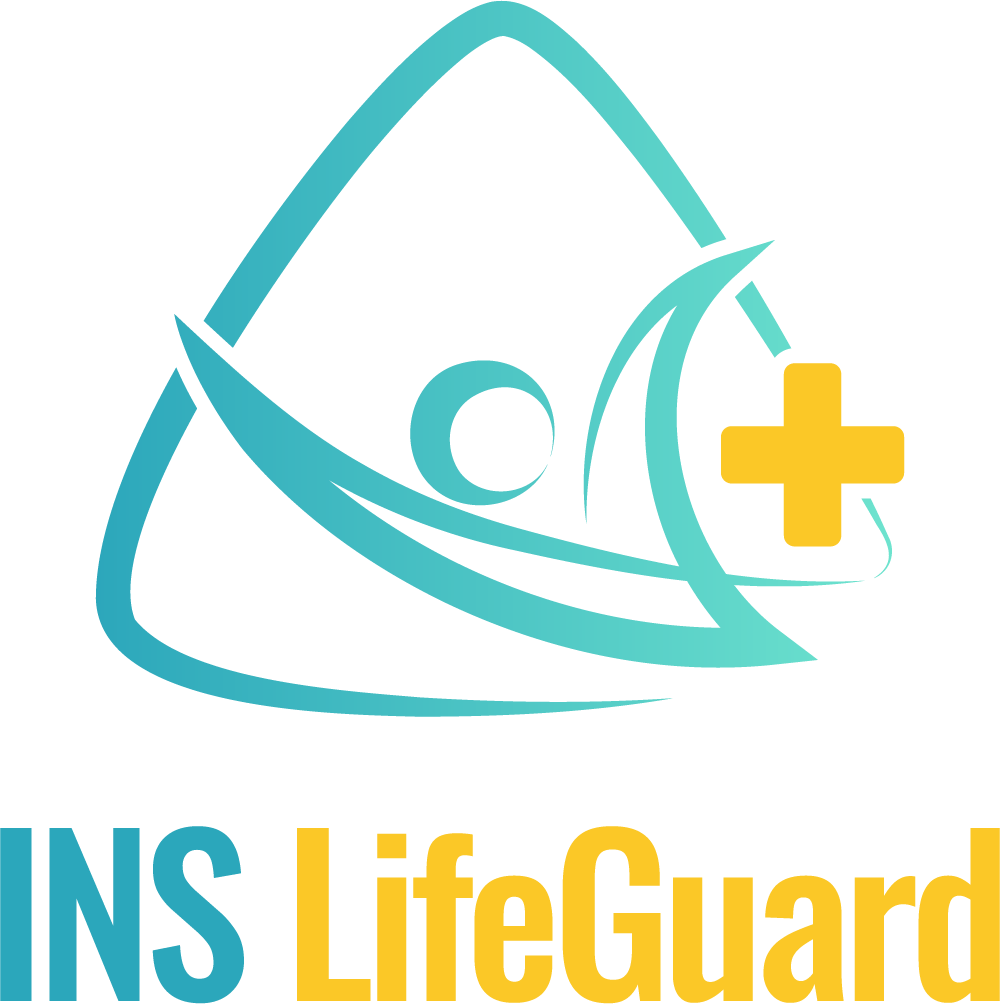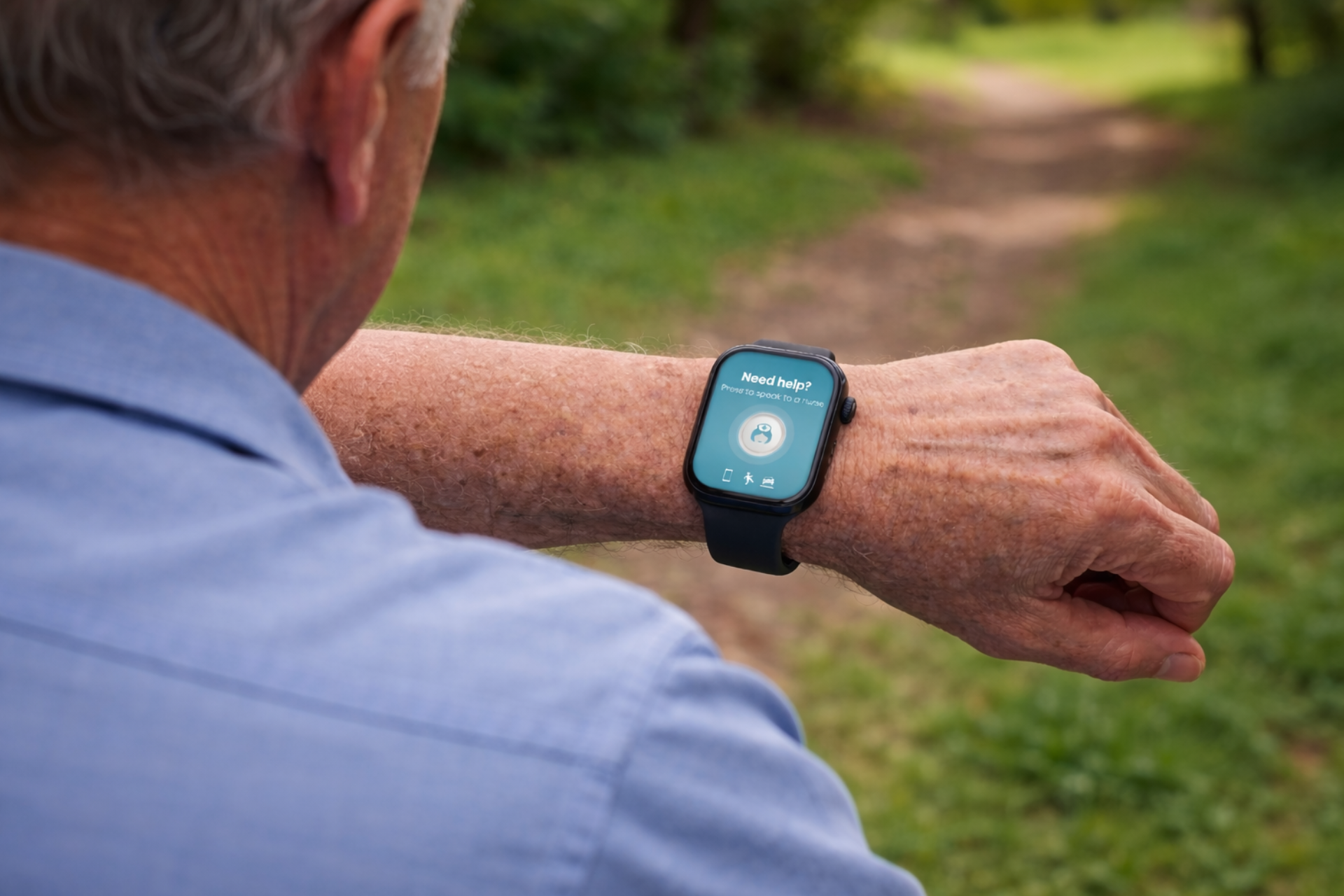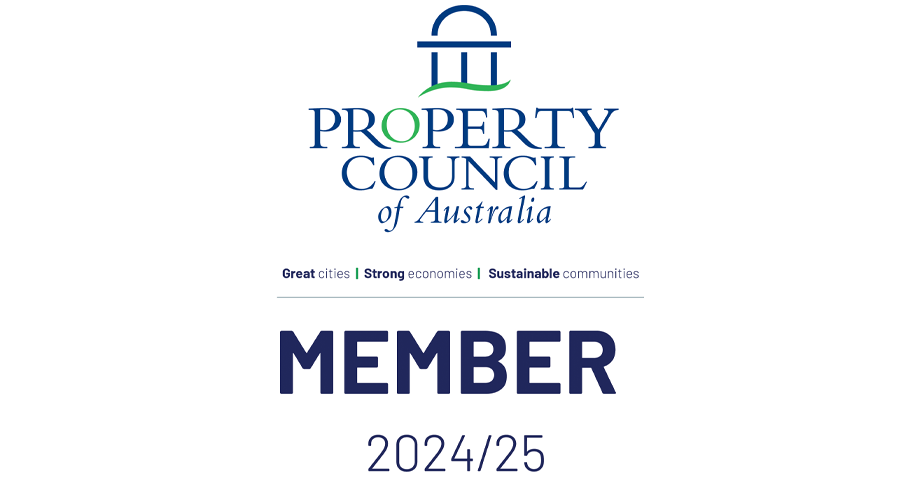Have a Question?
12 Tips for Caring for Elderly Parents in Australia

Want to make sure your elderly parent is safe and sound in your own home? A personal alarm system can be a great solution. At INS LifeGuard, we offer a range of personal alarm systems to help you and your elderly parent access help 24/7.
Caring for an elderly parent can be a rewarding experience but also one that comes with unique challenges. At times, it can even be emotionally, physically and financially draining. That's why it is important to be aware of the resources and support available in Australia to ensure your elderly parent is receiving the care they need.
But aside from these, an important part of caring for an aging parent is understanding their specific needs so you can find ways on how to alleviate their burden and best support them. To help you be guided, we've compiled some tips to ensure you provide the best possible care for your elderly parent.
How can you care for the elderly?
There are several ways on how you can take care of your elderly parents, senior family members, or the ageing people in the community.
1. Arrange Proper Care
According to some research, 80% of older Australians prefer to continue living in their own homes should they ever require assistance or care; 6-7% said they wanted to relocate closer to family or friends, and 11-12% said they would like to downsize from their existing home to a smaller residence. Just 25% of respondents said that if they needed support and medical care, they would prefer to live in a residential aged care facility. This goes to show that when people get older, their level of commitment to staying put rises.
Given this data, you know how important it is to plan ahead and arrange the proper care for your loved one. It is important to involve your loved one's doctor in their care plan, ensuring you are aware of any existing health conditions and the level of care required for their needs. If your elderly parent wants to live in your own home, consider making the necessary adjustments or modifications for him/her. On the other hand, your elderly parent can live in a trusted and reputable nursing home if he/she prefers a more social environment.
2. Prioritise Safety
If you have elderly parents living at home with you, consider whether your facilities are safe and comfortable for them to live in. Regardless of where your elderly parents are living, you should ensure safety is a top priority. This can be done by:
- removing objects, clutter, or hazards that may cause them to trip or fall
- rearranging furniture so that there are no tripping hazards
- making sure all light switches and outlets are covered, if not replaced
- securing railings and guard rails to prevent falls or slips
- installing a reliable medical alert system in your home that can be used in case of an emergency
Taking these steps will ensure the safety of elderly parents and give them peace of mind knowing they are protected in their own home. It also helps to learn more about the falls prevention strategies in aged care, as falls are one of the leading causes of hospitalisations among Australian seniors.
3. Make Home Modifications
There are many older adults who require special assistance with daily tasks, so make sure that every corner of your home is senior-friendly. If possible, make some few modifications as necessary to ensure that your home is safe in case they decide to live independently.
Make sure to have handrails throughout the house to aid them in maintaining their balance and stability. If your elderly family member needs a wheelchair or other mobility aids, make sure there is enough room for these items. As much as possible, make sure your home has sufficient space and amenities such as an accessible bathroom and non-slip flooring for them to move around easily.
4. Monitor their Medications and Medical Check-Ups
Ensure that your elderly parent has enough medication on hand. All of their prescriptions must be filled and updated as necessary. If they are taking multiple medications, it would be better if you can purchase a pill organiser, classify them on each compartment, and label them according to their dosage and schedule of intake. This way, you can easily monitor the medicines they take and ensure that they have enough supplies. If a new prescription is added, ask the doctor or pharmacist about the potential side effects or interactions it may have with other medications.
Regular medical check-ups are also a must. Keeping up with annual physical examination and regular health checks can spot subtle changes in health before they become bigger issues. During the check-up, your parent's doctor should be informed about any changes in their weight and appetite, new symptoms or ailments, general mental and physical health, as well as any medications they may have recently taken. After the check-up, you or the assigned carer should then take note of any new caring responsibilities or medication changes you need to follow to ensure that your parent's health is well taken care of.
5. Prepare Healthy Meals
Most older people no longer have the time and energy to cook and prepare their own meals. Nonetheless, it is important that you keep them healthy by feeding them with a well-balanced and healthy diet. If you know how to cook, you may want to consider preparing a meal plan that is both nutritious and easy-to-prepare. But if you don't have the skills or you have no time, there are still several ways you can ensure your elderly loved one is receiving the nutrition that they need.
There are home care service providers available that accommodate special meal requests. Depending on the condition and preferences of your elderly parent, you can sign up for different meal plans per day or per week.
6. Keep Them Active
Regular physical activity is essential for elderly people as it helps them maintain a healthy lifestyle and reduce the risk of diseases. Not only does it improve strength and flexibility but it also helps maintain a healthy weight, lowers cholesterol levels, and can even improve mental health. What's more, it strengthens the immune system which is vital to fight off certain infections and delay health problems such as heart attack, cancer, osteoporosis, and many more.
Help the people you care about live healthy lives. Encourage your elderly loved ones to engage in regular physical activity each day to maintain their health. Exercises that are easy on the joints, including swimming, cycling, dancing, quick walks, and moderate yoga, are recommended for seniors. If they are unable to move independently, you can look for ways to keep them active. Look for pleasurable activities you and your senior can do together, such as dancing, jogging, or just simply walking.
7. Take care of yourself
If your goal is to take care of your elderly parent or an older family member, it is important to take care of yourself, too. Caring for someone else can be physically and emotionally draining, so it is essential to make sure that you are taking care of your own health as well.
Find ways to stay active, eat well-balanced meals, get enough rest and practice stress management techniques. Taking time for yourself will help you be more patient and better able to handle the demands of caring for an elderly parent or family member.
8. Understand Their Health Condition
Older adults are more prone to acquiring certain health conditions given their old age and lifestyle. That's why it is important that you learn about the common health risks and symptoms of their condition, so you'll be able to identify the signs if things get worse. Also, you'll be more equipped to provide updates on their health at doctor's appointment, which is also essential in ensuring they get the right care and treatment for their condition.
9. Include Them in Social Activities
Aging parents are particularly vulnerable to social isolation and loneliness. As they undergo changes in the body, many seniors may find themselves unable to drive and isolated from their family members, which can possibly lead to negative emotions, depression, anxiety, and other mental health issues. To prevent these cases, you can try to look for ways to include your elderly parent or senior family member in social activities and get involved in the community.
If they used to love an activity, you can look for group memberships where they can sign up and engage with others of similar interests. These activities don't need to be grand. Hence, they can be in the form of reading books, watching TV, group exercise, gardening, art, or something similar that is passive but fun and engaging. Simple activities like visiting new places and playing board games are also good for their mental health, particularly for those who are dealing with memory loss.
10. Spend Time With Them
This may seem cliché, but spending quality time with your elderly parent is undeniably one of the best ways to show your care for them. Aging parents may not be able to do the same activities they used to do, but that doesn't mean you can't still have fun together. By visiting them and inviting them to join your gatherings and trips together with other family members, you can boost their wellbeing and overall health.
Having conversations with them about different topics and finding out their opinions also gives them an opportunity to feel valued and important. Your caring role doesn't stop with medical care and support but also extends to their emotional wellbeing. And one way of doing this is to make sure they feel valued by their family members.
11. Find a Respite Care Provider
We have to face it. There will be those times when you or your carer won't be able to meet the needs of your elderly parents, therefore you need someone you can trust to take care of them. Getting a respite care provider might add up to your cost, but it could be both beneficial for you and your loved one.
Respite care is a type of temporary care that provides support for family caregivers, family members, or other close relatives who are caring for older adults. It can provide short-term relief that allows family caregivers to take some time off from their regular caring responsibilities, while ensuring that their elderly loved ones receive the care and attention they need.
When looking for a respite care provider, it’s important to ensure that they are experienced in providing the specific type of care your parents need. Ask referrals from your friends and check reviews carefully to learn more about their qualifications and experience.
12. Financial Support
After retirement or when they have already left the workforce, many older adults no longer receive a regular income from a job. While those receiving pensions and other retirement benefits may have some forms of income, these payments are often inadequate to meet the rising cost of living expenses. Additionally, the limited opportunities for employment in later life, increases in healthcare costs, or some unforeseen life events can make it challenging for older adults to accrue enough income.
Thus, it is important to save money not only to cover their daily expenses but also for them to have something to fall back on in case an emergency situation arises. Having a financial support reserved basically allows them to have a safety net to keep living without worries by having more control over their future.
What services are available for older Australians?

There are a wide range of services available through various government-funded programs and non-government organisations designed to cater to the specific needs and requirements of older Australians.
These services include but are not limited to:
- Government-funded Aged care services for individuals requiring residential aged care, home care, and respite care
- Social support services to help the elderly stay connected with friends and other family members, as well as participate in social activities
- Health care services such as physiotherapy, podiatry, and occupational therapy
- Community resources that include housing assistance, meal delivery, and transport services.
- Advocacy and counseling services to provide support and guidance on legal, financial, and emotional issues.
- Online services designed to help older Australians feel more comfortable, competent, and safe using technology online.
- Work assistance to assist older adults to enter into employment, if they are able and wish to do so
- Disability services for elderly individuals requiring assistance in performing daily activities.
Social support and aged care services are accessible to older Australians through the Department of Social Services, Department of Veterans' Affairs, Australian Red Cross, My Aged Care, and many more.
What are the 3 main types of aged care services in Australia?
According to the Department of Health and Aged Care of the Australian Government, there are 3 main types of government-funded aged care services for elderly people in Australia which include in-home care, residential care in aged care, and short-term care such as respite care.
1. In-home Care
In-home aged care services are provided to elderly parents or family members who need assistance in their daily activities such as personal care, meal preparation, medication management, housekeeping, physiotherapy, social activities and more. In-home aged care services are designed to provide safe, compassionate care while allowing clients to remain independent in the comfort of their own homes.
2. Residential Care in Aged Care
Residential care in aged care is designed for elderly parents and senior family members who are unable to live independently or those who require continual assistance with daily activities or medical care.
This aged care service provides access to general health care services, accommodation, and personal care which are available around-the-clock in their nursing home, which was subsidised by the Australian Government in order to provide eligible individuals with the respite care or permanent residential care that they need.
3. Short-term Care
Short-term care offers support services for a set period of time to elderly parents and senior family members in Australia. Depending on your needs, there are 3 types of short-term care available to assist you in daily activities and keep you independent for as long as possible.
Short-term restorative care
Short-term restorative care aims to assist aging parents in mitigating or delaying the challenges they encounter while performing everyday tasks. Depending on the unique needs of each elderly parent or senior family member, this program may involve various activities that are designed to restore independence and improve well-being.
These activities may include exercise, providing access to mobility aids, meal preparation, or making small modifications throughout the home. Short-term restorative care is well-suited for individuals who desire to return to their prior level of independence and aim to reduce their reliance on long-term care and support services.
Transition Care
Transition care is designed to provide support to those elderly people who need to recover after being hospitalised. This program offers up to 12 weeks of short-term care to aid older adults gain back their independence so they can prevent the need for long-term care and support.
Some of the activities offered under this program include personal care, allied health care, nursing assistance, and social services. Your care is provided where it will be most helpful to you in achieving your needs and goals. Depending on your recovery needs, this could take place in a nursing home, your own home, in the community, or a combination of these places.
Why is caring for the aging important?

Aged care services play an important role in making sure our elderly parents and senior family members are given all the support and care they need to live a happier and more fulfilling life.
Quality of Life
As our elderly parents age, the time we have with them becomes more precious. Regardless of whether they have just a few months or years left with us, we want to make sure that they experience the best quality of life possible in every single day they spend with us.
Among all other people, our elderly parents are the ones who need more care and attention. You want to ensure that they remain healthy both physically and mentally by providing them with the necessary support, comfortable living at home, and proper nutrition.
No one deserves more in life but our elderly parents and loved ones who have shared so much of their time and energy to make our lives better. That's why we owe it to them to provide the best care possible in their later years.
Sense of Purpose and Belongingness
As our parents grow old, what they desire most is to feel a sense of purpose and belongingness within a society that is constantly changing. They yearn for purpose and the assurance that they still have a vital role to do in their families and communities.
As we know, having a strong sense of purpose in life allows a person to be healthier, become more mentally strong, and significantly live longer. By allowing your elderly loved ones to be socially active and by cultivating curiosity and happiness in their life, you can help them achieve that sense of purpose and belongingness they are looking for. In addition, engaging them in these activities keeps them away from the negative feelings of social isolation.
Peace of Mind
Having to see your elderly parents or a loved one get older is never easy, most especially when you them lose the ability to accomplish tasks independently. However, if you provide them the appropriate elder care, you can be confident and have the peace of mind that you are doing everything in your power to make sure they have what they need.
Express Love and Respect
There is no perfect way to show your love and respect for your parents but to put their needs before anybody else. After all, they are your parents and what you want is to repay them for all the love and work they put in raising you.
There is no better motivation for seeking senior care for your loved ones than your unwavering love for them. It allows them to live a better quality of life, no matter where they are in their journey.
What does care for the aged mean?
Aged care refers to the range of support and services that are provided by the Australian Government to older adults who require assistance with their daily life due to age-related issues or physical and mental conditions.
Aged care services may include assistance with personal care, medical or clinical support, daily living aids, social engagement, and accommodation support. These services aim to enhance the quality of life and support the physical and mental well-being of older adults who may need help with daily tasks, as well as those who require significant care needs.
How do you stay sane while caring for an elderly parent?
As our elderly parents get older, their care requirements become more complex and demanding. And it can be challenging for you to deal with them, particularly if you also have your own duties to attend to. Although caring for our elderly parents is fulfilling, it might not be always easy to provide for their needs as they age.
Focus On Your Goal
Remind yourself to stay focused on your goal. When dealing with challenging parents and older people, it is essential to pick your battles wisely and distinguish between issues that actually need to be addressed and those that are worth settling on since not every issue is worth a fight. As much as possible, avoid arguing, yelling, and putting them pressure as these could only aggravate the problem and cause serious damage in your relationship. Your goal is to ensure they are taken care of and that their needs are met, not to be right or win an argument.
Set Boundaries
Regardless of how close you are to your family member, boundaries are important to be set to maintain harmony and lessen tension between the two of you, more especially if your elderly parents have uncontrollable behaviours. By setting your own limits, you can preserve open lines of communication and improve your relationship with your parents. You can't always ask your parents to act differently, so it's important that you become aware of your limitations and ask for help when you need it.
Accept the Situation
Seeing your aging parents deal with life's everyday challenges is heartbreaking, most especially when they are not that open to receive help from people around them. However, you may convince them to change their viewpoints and consider alternative possibilities with the help of geriatric care managers or support groups. Geriatric care managers basically help assess the needs of your parents, develop a plan of care that both you and your parents will agree with, and coordinate the services needed to meet them. Through support groups, you can also receive the much needed comfort and emotional support for your aging parents, as well as yourself. This way, the whole family or you as a carer can accept the situation better and face it with confidence.
Strengthen Your Family Relationships
For some families, living under one roof with their other family members might be ideal. People in some cultures frequently live in houses with many generations, particularly when the elderly family member has a serious illness or cannot live independently.
At this phase in your parent's life, strengthening your relationships with your family members will help you cope very well amidst the various struggles of caring for your parent. Commit to spending time with your loved ones and create an atmosphere in which everyone can express their feelings about the situation. Participate in family activities and find ways to make positive memories with your elderly parents.
Talk With the Doctor
During this phase, there is no one who can better understand the situation and condition but your healthcare providers. Aside from your family, your caregiver, nurse, physical therapist, and the doctor are the only individuals who can help you manage the condition of your elderly loved ones.
If everything doesn't seem right or when things get too difficult for you to handle, you can talk to your doctor or health provider to discuss your concern for your parent's well-being. In the end, a doctor's suggestion might be the only one that your parents will take seriously.
Take Time For Yourself
Always keep in mind that at the end of the day, you are ultimately responsible for your happiness and mental health. Prioritising self-care is essential to be able to effectively provide care and support to your loved ones. Your own wellbeing must receive due attention for you to be able to provide comprehensive care to others. Make sure to designate a room in your home for yourself where you can relax, nap, exercise, and basically take a break or make time to escape from the everyday routine.
Take some time off for yourself from time to time by going out with friends or family, listening to music, reading books, or even taking a solo trip for some self-reflection. Use these activities to ground yourself and prepare for the challenges ahead.
Takeaway
Ageing is a part of life that is impossible to avoid. As our elderly parents age, it becomes more difficult for them to take care of themselves and stay safe. Hence, adult children are often left with the caregiving responsibilities for their aging parents. By taking proactive steps, following a few simple tips, and through the help of in-home care services, we can ensure they are able to live their lives safely with dignity and purpose.
If you are living with an elderly parent and you are looking for additional ways to help your loved one stay safe and independent even when you're not around, you might consider investing in a personal alarm system. INS LifeGuard offers the best personal alarm systems in Australia to assist you in safeguarding your loved ones at all times. To know more about the products and services we offer, you can browse our website or call us on 1800 636 040 and we'll be happy to assist you with your needs.

About
INS LifeGuard is the only 24/7 nurse on-call personal and medical monitoring in Australia. We provide monitoring technology for both in the home and on the go and can also monitor other provider's equipment. Our services are suitable for anyone wanting support to stay independent such as the elderly, those with medical conditions and disabilities plus enhancing safety and security for lone workers.

















